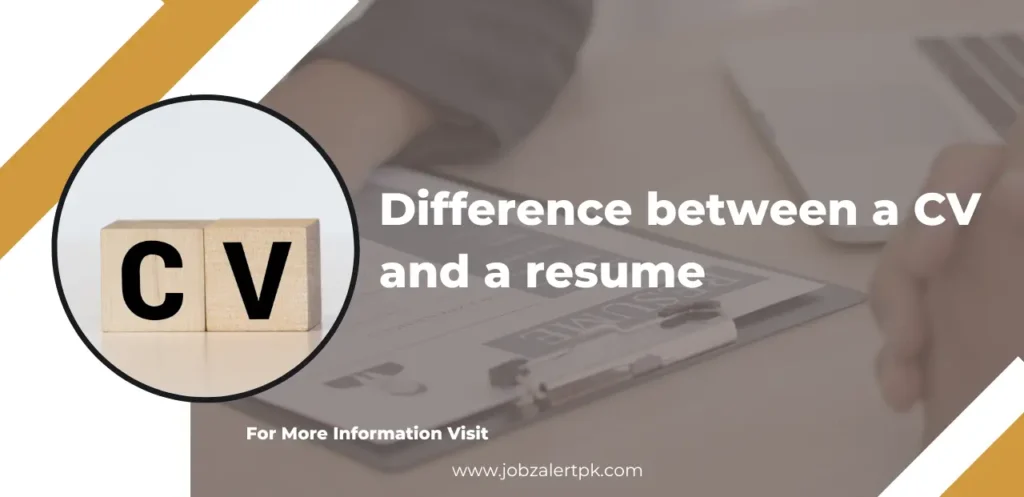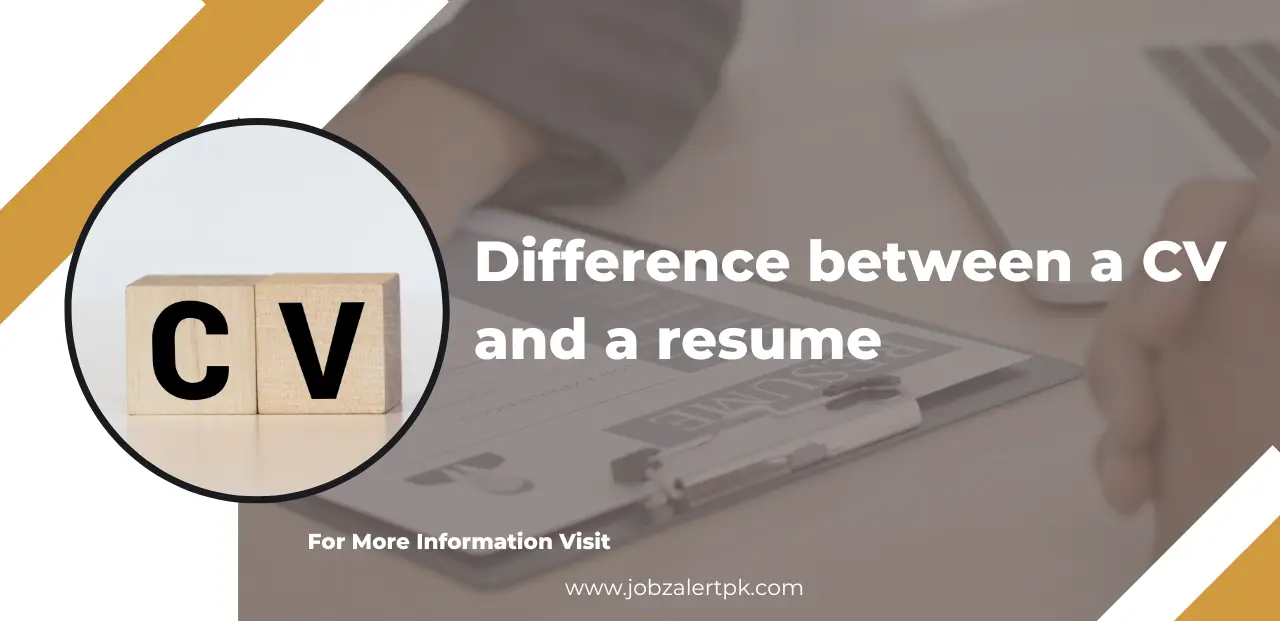A CV and a resume are two important documents used in the job application process. Many people get confused between the two, but understanding their differences can help you create the right document for your job search. The main differences lie in their length, purpose, content, and when and how you use them. Knowing when to use a CV and when to use a resume can make a big difference in your job search success.
Also Read About How to Write a CV for a Job with No Experience
What is a CV?
A CV stands for Curriculum Vitae, which is a Latin term meaning “course of life.” It is a detailed document that outlines your full career history, including your education, work experience, research, publications, professional achievements, and any other significant milestones in your career. A CV can be many pages long because it includes all the details of your academic and professional life. Typically, CVs are used when applying for academic jobs, research positions, or roles in other countries. A CV remains mostly the same over time, with updates added only when significant career milestones occur, such as new publications, research projects, or qualifications.
Free Resume Builder
What is a Resume?
A resume is a shorter document, usually one or two pages long, that summarizes your skills, qualifications, and relevant work experience for a specific job. Unlike a CV, which includes a full career history, a resume is more concise and tailored to highlight only the information that is relevant to the job you’re applying for. The purpose of a resume is to show the employer that you have the right skills and experience to do the job. Resumes are used for most job applications, especially in the private sector. They should be customized for each job you apply to, focusing on the skills and experiences that best match the requirements of the position.

Key Differences Between a CV and a Resume
| Aspect | CV | Resume |
|---|---|---|
| Length | Longer, can be multiple pages | Shorter, usually one to two pages |
| Content | Detailed career history, publications, research, achievements | Focuses on skills, work experience, and qualifications relevant to the job |
| Purpose | Used for academic, research, or international jobs | Used for most corporate and private sector jobs |
| Customization | Stays the same with minor updates | Tailored for each job application |
| Focus | Full career details and academic achievements | Specific skills and experience for a job |
When to Use a CV or a Resume
- Use a CV when applying for academic jobs, teaching positions, research roles, or positions in industries where detailed career histories are required. CVs are commonly used in Europe, Asia, and other parts of the world, especially for roles in education, healthcare, and research.
- Use a Resume when applying for corporate jobs, government positions, or roles in the private sector. Resumes are the standard document for job applications in the USA and Canada. They are also preferred for most professional positions in fields like business, marketing, and IT.
How to Format a CV
A CV should be organized and include the following sections:
- Personal Information: Include your full name, contact details, and a professional photo (optional).
- Education: List your academic qualifications with dates of completion, including degrees, certifications, and any specialized training.
- Work Experience: Provide detailed descriptions of your job roles, responsibilities, and achievements.
- Research and Publications: Include any research projects, articles, or papers you have published.
- Awards and Honors: Mention any academic or professional awards you have received.
- Professional Affiliations: List memberships in professional organizations or societies. Make sure the CV is easy to read with clear headings and consistent formatting.
How to Format a Resume
A resume should be more concise and focused on the job you’re applying for. It should include:
- Contact Information: Your name, phone number, email address, and location (city and state).
- Career Objective or Summary: A brief statement of your career goals and what you bring to the job.
- Skills: A section that highlights your most relevant skills, such as technical skills, language skills, or certifications.
- Work Experience: A summary of your previous job roles, highlighting key accomplishments and relevant experience.
- Education: A brief list of your academic qualifications and any certifications relevant to the job.
- Additional Sections: Optional sections may include volunteer work, languages spoken, or personal projects. Keep your resume clear and concise. Avoid including irrelevant information that does not directly relate to the job.
Conclusion
Both a CV and a resume are important tools for job seekers, but they serve different purposes. A CV is detailed and used primarily for academic, research, or international job applications. On the other hand, a resume is concise and focused on the skills and experience that match the specific job you are applying for. Understanding the differences between these two documents is essential for creating an application that best represents your qualifications and helps you land your desired job.
By knowing when to use a CV or a resume and how to format each one, you can ensure that your job application stands out to employers and improves your chances of success in the job market.
FAQs
What is the main difference between a CV and a resume?
The main difference is that a CV is much longer and includes a complete history of your career, including research, publications, and achievements. A resume is shorter, typically one or two pages, and focuses only on the skills and experience relevant to the job you’re applying for.
How long should my resume be?
A resume should ideally be one to two pages long. The goal is to keep it concise while highlighting the most important and relevant experience and skills for the job.
Is a CV used for all job applications?
No, a CV is typically used for academic jobs, research positions, or international roles. For most private sector and corporate job applications, a resume is preferred.
Do I need to tailor my CV for each job application?
No, a CV generally remains the same, though you may need to update it with new publications, research, or career accomplishments. A resume, on the other hand, should be tailored for each job application to highlight relevant skills and experiences.
